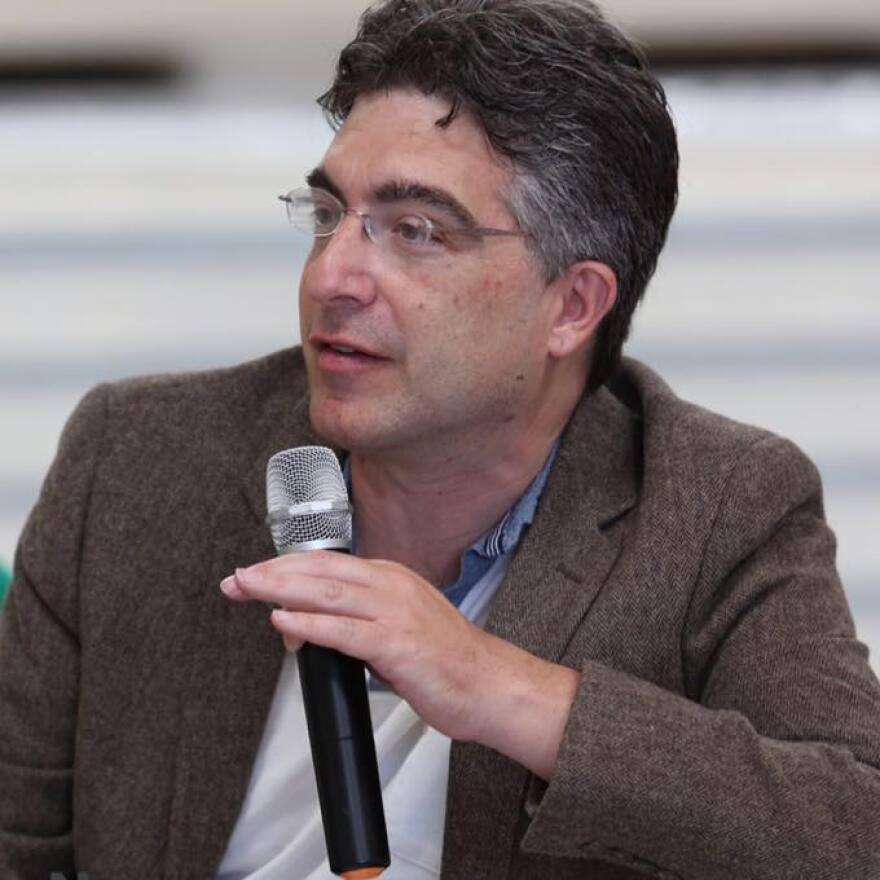Commentary: Jonathan Franzen got panned this month for his essay in the New Yorker challenging readers to stop pretending climatic change can be solved or averted.
“If you care about the planet, and about the people and animals who live on it, there are two ways to think about this,” Franzen wrote. “You can keep on hoping that catastrophe is preventable, and feel ever more frustrated or enraged by the world’s inaction. Or you can accept that disaster is coming, and begin to rethink what it means to have hope.”
On Friday, Sept. 20, high school students in at least 800 locations in the United States plan to engage in a walkout from school to participate in Global Climate Strike events calling not just for hope, but action to end climate change.
The strikes follow the example of 16-year-old Greta Thunberg, who began holding weekly vigils outside the Swedish parliament on her own in 2018, demanding government action on carbon emissions that are heating Earth’s atmosphere and oceans, leading to overlapping and accelerating effects on natural systems.
Young people will be criticized, no doubt, for taking a day away from institutions that regard them primarily as future employees.
Here is my blanket note of excuse to all school principals.
Our youth need and deserve to express human concern for their prospects of life, liberty and happiness. Remember, they can realistically look forward to witnessing disruption of food production, increasingly disastrous wildfires and storms, tottering economic and political systems, and increasing migration by climate refugees.
Teenagers contemplating their future in this landscape need to view themselves as more than employees-in-training. They deserve to be protagonists.
At age 60, Franzen contemplates what it means to have “hope” at this stage.
If the Intergovernmental Panel on Climate Change’s calculations are accurate (and they seem, in recent research, to have underestimatedthe pace of warming and ecological disruption), slowing the rising global temperature requires a rapid transition to zero net carbon emissions — a feat requiring rapid and organized transformation of human societies that is without precedent.
In short, it would require social revolution in multiple countries, and a guarantee that those revolutions establish stable societies with the resources and consolidated political power needed to counter the will of transnational capital in order to transform agriculture, energy production and consumption, all while the process of advanced climate change is underway.
How might we think about all of this? Different generations may view it differently.
At the level of individual hope, Franzen recommends a “balanced portfolio” combining “struggle against the constraints of human nature” with attention to saving local, meaningful things we love here and now.
For adults struggling against the nihilistic implications of climate change and human denial, this is decent advice. Yet Franzen omits what I suspect many of the children protesting on Friday understand: This is not a struggle against the constraints of human nature, but of entrenched systems of financial and political power.
The tendency to view the logic of human-made social and economic arrangements as immutable natural forces, rather than human behavior that can be changed, has arguably been as decisive for our fate as climate change denial.
The political promise of a “green new deal” offers false hope to the extent that it ignores the necessity of dismantling systems that pit short-term interests against the survival of the species.
To put it another way: While we should discuss the possibilities of legislation and policy, we should take into account the limits of our political imagination, and how that keeps large numbers of people from seeing the connection between class power and the rising tides.


